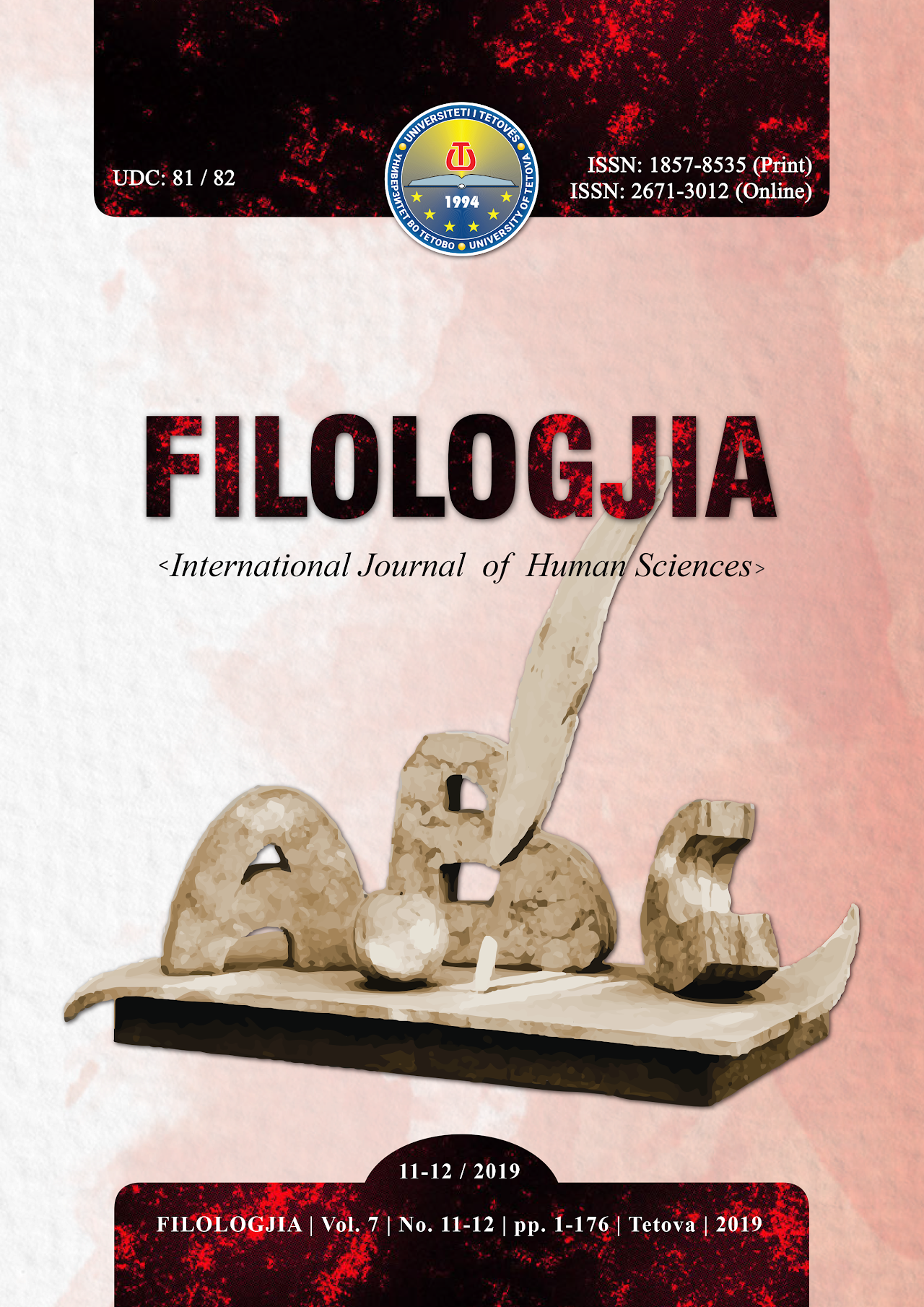CODE-SWITCHING AND CODE-MIXING AS SPECIFIC CULTURAL OCCURENCES IN EVERYDAY CONVERSATIONS BETWEEN GERMANS AND ALBANIANS IN SWITZERLAND
CODE-SWITCHING AND CODE-MIXING AS SPECIFIC CULTURAL OCCURENCES IN EVERYDAY CONVERSATIONS BETWEEN GERMANS AND ALBANIANS IN SWITZERLAND
Author(s): Gjuliano Iseini, Xhyla ÇELIKUSubject(s): Language and Literature Studies
Published by: University of Tetova
Keywords: Code-switching; code-mixing; language; sociolinguistics; immigrants; acc multilingualism; semi-linguistics
Summary/Abstract: In this study, linguistic code-switching and code-mixing will be presented as specific cultural occurrences in everyday conversations between German-speakers and Albanians in Switzerland. Specifically, this research aims to address linguistic communicative situations of Albanian-speaking immigrants and their sociolinguistic integration in German-speaking Switzerland. It is widely known that language is reserved for people only. In this regard, Wilhelm von Humboldt teaches us that man lives through language. In addition, mother tongue, multilingualism, and communication are central to our daily lives and at the same time, genuinely important for a better understanding of different cultures. However, an active participation in society can only be promoted through language. The acquisition of language skills has become a challenge for linguistics and society. Next, linguistics aims or its objective is to identify explanations for language processes and to develop an adequate language evaluation. Phenomena regarding language contact, such as code switching and code-mixing appear among immigrants who have a different mother tongue than the usual language of the host country in which they live, but usually communicate with one another in their native language. The linguistic phenomenon of code-mixing is mostly referred to as a sign of semi-linguistics. By doing so, the communicative, pragmatic and syntactic meaning of code-mixing is ignored. One of the reasons for this may be the negative attitude towards code-mixing which might provoke a thesis that interprets code-mixing as 'useless', 'aimless' and 'irregular'. Finally, in terms of investigating multilingualism among immigrants, the purpose of this study can be defined as a research on code-switching while taking into account code-mixing among Albanian immigrants in Switzerland.
Journal: FILOLOGJIA - International Journal of Human Sciences
- Issue Year: 7/2019
- Issue No: 11-12
- Page Range: 71-82
- Page Count: 12
- Language: German

